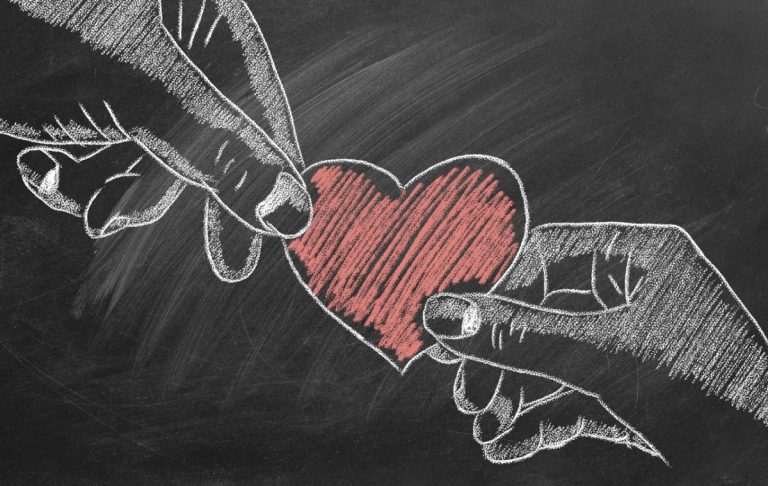(Photo: Getty/iStock)
At the memorial service for her murdered husband, with tens of thousands watching and grief still raw, Erika Kirk spoke two words that stilled the crowd, “I forgive.”
It’s fair to say the internet didn’t quite know what to do with those words. Forgiveness is shocking in a world obsessed with vengeance. We know how to be outraged, to call out, to cancel. Outrage gives us moral standing; it’s how we show we care. But it also traps us in a constant good-versus-evil contest, even over the smallest things. Everyone’s trying to prove they’re on the right side or that they’re the injured one who deserves to be defended.
And it’s exhausting. It shrinks our ability to show grace, to overlook small wrongs, to reconcile. As Tim Keller put it, “Forgiveness is seen as radically unjust and impractical, as short-circuiting the ability of victims to gain honour and virtue as others rise to defend them.”
In a world of score-keeping and no grace, mistakes become permanent. Our political tribes start to feel like new religions complete with saints and sinners, but without any hope of redemption.
Forgiveness can feel naive, weak, even wrong. It sounds like we’re saying the wound doesn’t matter. But the cross of Christ shows us something infinitely deeper … that forgiveness does not erase justice; it fulfils it!
At Calvary, the world’s greatest wrong was met by the world’s greatest love. The Holy One who was without sin bore the full weight of sin (2 Corinthians 5:21) and in that moment, justice was not ignored, it was perfectly satisfied.
God did not simply wave away our guilt; He carried it Himself. That’s what makes Christian forgiveness utterly different. It is faith, conviction, an act of trust to place justice into the hands of the Holy One, the only one who judges perfectly.
When we forgive, we are not pretending the hurt was small. When we forgive we may not feel that forgiveness, yet we choose to demonstrate it. We are saying, ‘I will not take the place of God.’ We are echoing Christ, who, as Peter tells us, “when he was reviled, did not revile in return; when he suffered, he did not threaten, but entrusted himself to Him who judges justly” (1 Peter 2:23).
Forgiveness begins internally in the quiet moments where we decide before God not to repay evil with evil, to release the desire to get even. And that’s hard especially when the wound runs deep. Our world says forgiveness is therapeutic, something you do for your own peace of mind. But true Christian forgiveness goes deeper … it seeks to honour God first. He’s forgiven me, so I will honour him by forgiving others.
My dear friend John Mosey lost his daughter, Helga, in the Lockerbie bombing. An act of evil that shattered so many lives.
Yet, John and his wife chose to forgive the man connected to the attack. Not because the loss was healed, not because justice didn’t matter, but because they knew the One who had forgiven them first.
Their forgiveness wasn’t forgetting but foregoing revenge. An act of faith that said ‘we trust God with justice, we will not repay evil for evil.’
And that is the miracle of Christian forgiveness. It is the refusal to let bitterness define the future, the courage to give the gift we ourselves received through the cross. As Paul says, “Do not be overcome by evil, but overcome evil with good (Romans 12:21).”
Because when we look to the cross, we see what forgiveness truly costs. Jesus absorbed the full weight of our sin, bearing it on in his body (1st Peter 2:24). Forgiveness is sacrificial for us too – it costs us.
As we recently marked Black History Month, we remember that some of the most powerful revolutions in history began not with revenge, but with grace. From Martin Luther King Jr. preaching that love is the only force capable of turning an enemy into a friend, to Nelson Mandela walking free after twenty-seven years in prison saying, ‘’if I didn’t leave my bitterness and hatred behind, I’d still be in prison.”
In today’s culture wars, forgiveness is the most radical form of resistance. Because it refuses to let hatred write the ending. That is what the cross makes possible: a love strong enough to forgive the unforgivable, not in our own strength, but through trusting God who judges justly.
Each decision to forgive is a declaration of faith in divine justice. The conviction that God will one day set all things right. It’s not pretending evil doesn’t matter, but believing that it matters so much that only God Himself is worthy to judge it!
And that’s the message our divided world still needs to hear. Vengeance is His (Romans 12:19). So we can choose to release our grip, not because we’re weak or because we aren’t affected, but because we trust the One who is faithful and just and who forgave us.
Tim Farron has been the Member of Parliament for Westmorland and Lonsdale since 2005 and served as the Leader of the Liberal Democrat Party from 2015 to 2017. Tim is also the host of Premier’s ‘A Mucky Business’ podcast, which unpacks the murky world of politics and encourages believers around the UK to engage prayerfully. He is the author of A Mucky Business: Why Christians should get involved in politics.


